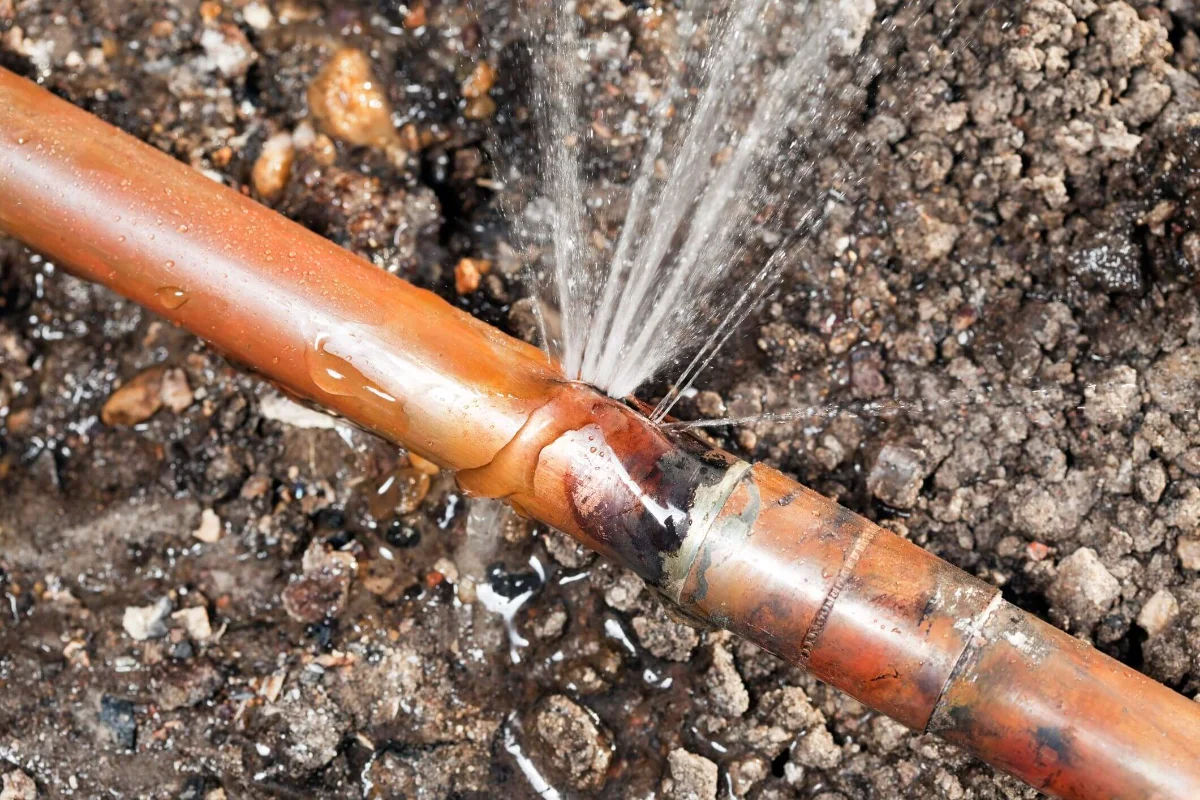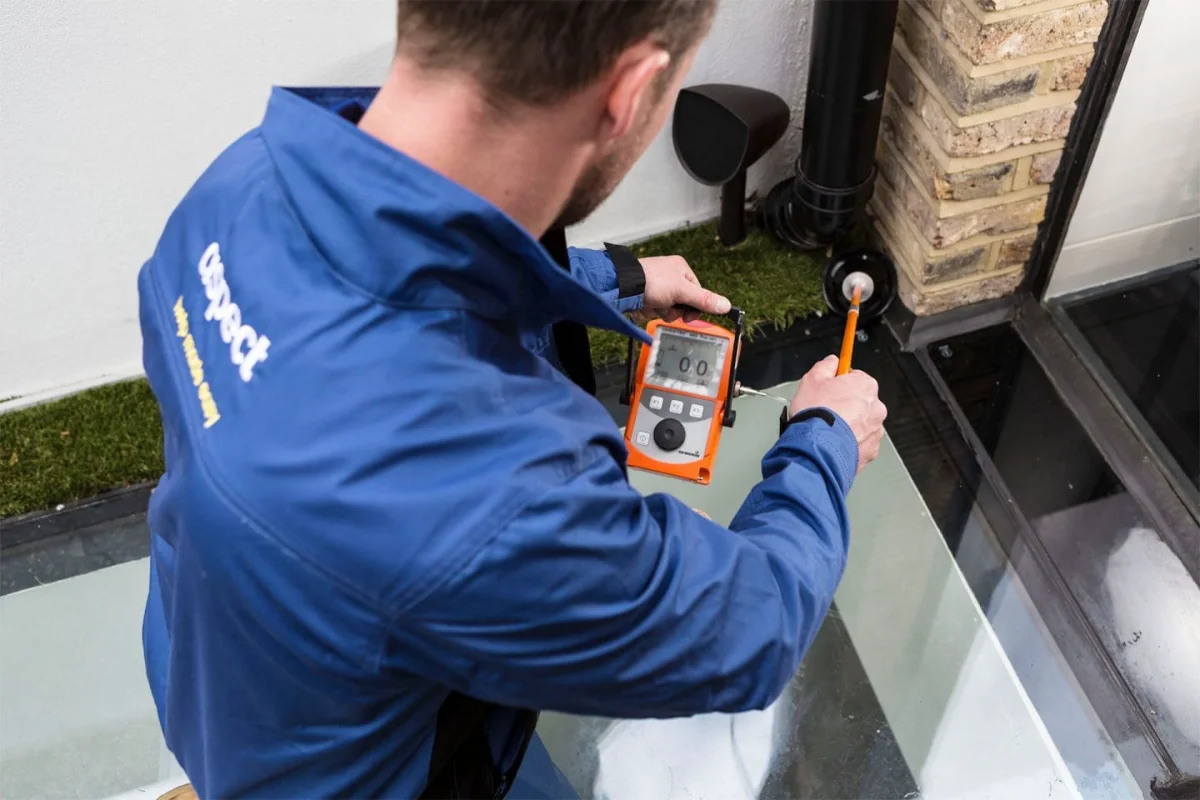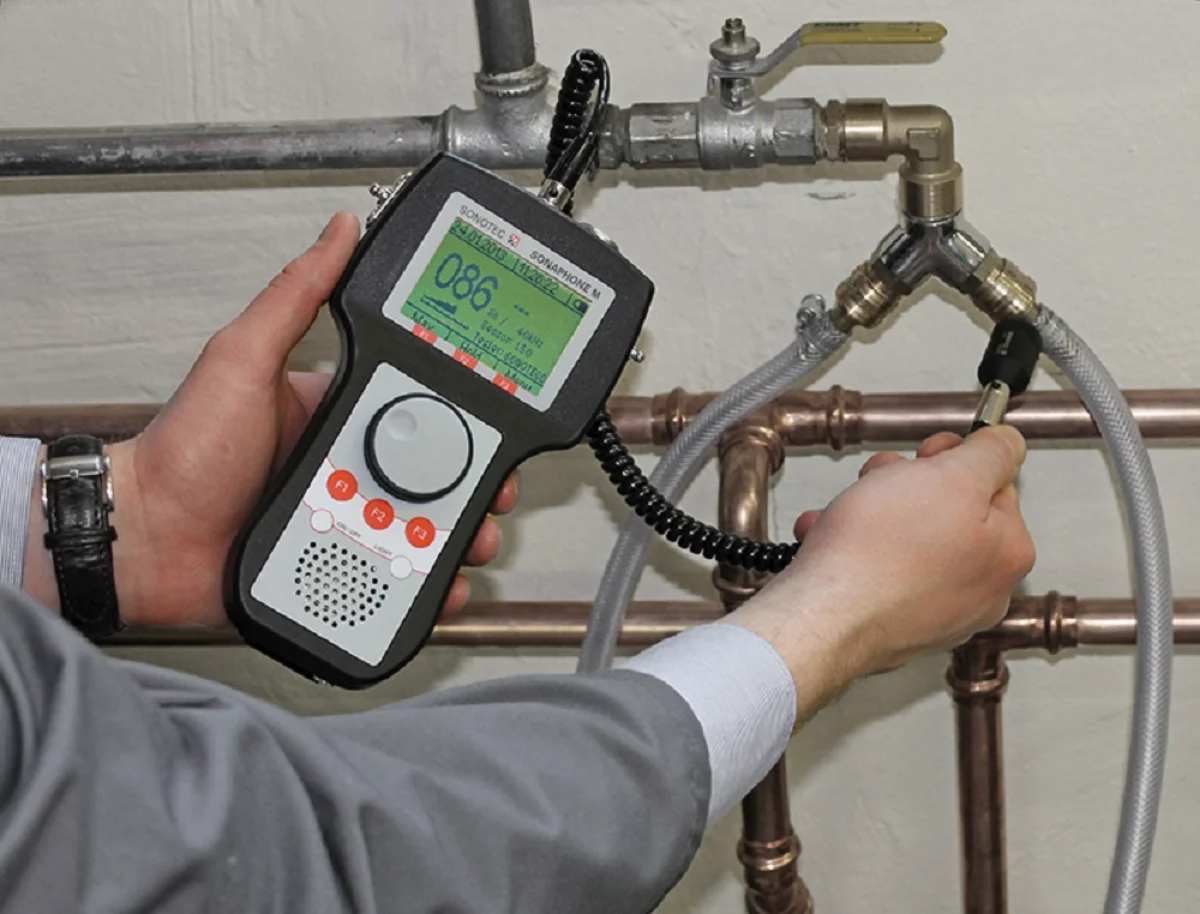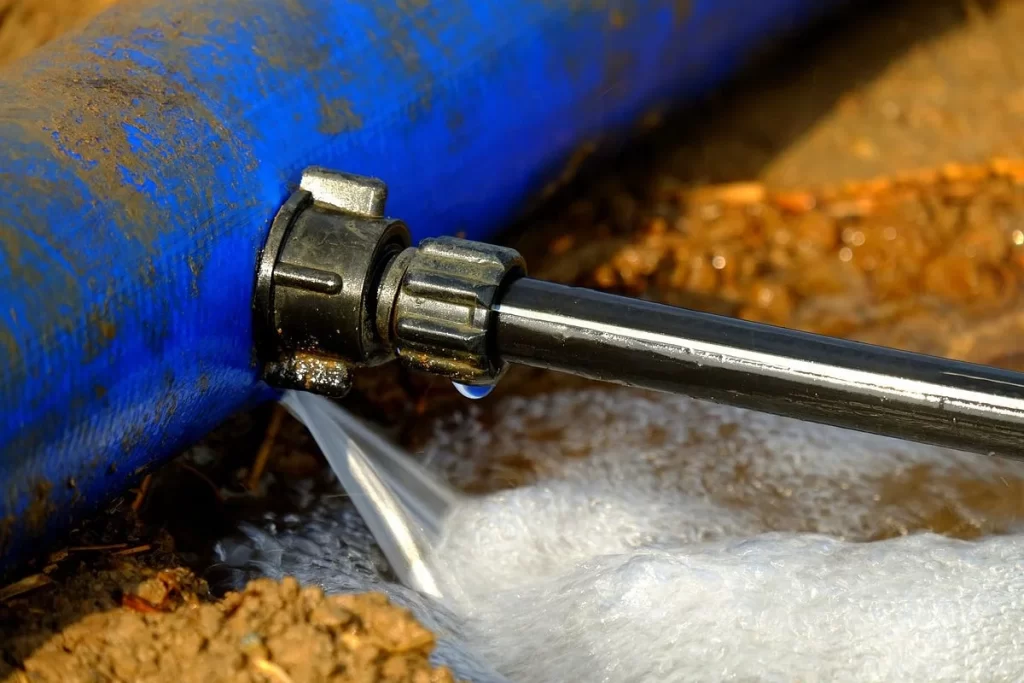A fault in your piping system puts your property and the people around you at risk. A water leak not only contaminates water but can also damage your property’s foundation. It can increase the humidity, which will promote mold growth. In particular, mold spores affect your breathing, leading to other health complications.
Therefore, finding underground leaks is crucial to avoid all these downsides.
In this blog, you’ll discover how to spot a water leak and how the professionals do it. Plus, we’ll take you through the water leak detection tools plumbers use.
How Can You Detect a Water Leak?

Plumbing issues are not always simple to identify. But with the following tactics, you can detect a water leak:
1. Scan Your Water Bill

When it comes to detecting a water leak, using your utility bill as an underground water leak detection tool is the first thing to do. Even if you only have a pinhole leak, the wasted water will add up over time. And so, if your water usage hasn’t increased but your bill has, you might have a leak.
2. Check the Water Pressure

Leaks divert water away from your tap, which lowers the pressure. Therefore, you should close all your taps and shut off your dishwasher and washing machine. Then, open a tap; you should have good pressure. If the water pressure is still low, you might have a leak.
3. Look for Pools of Water
A common sign of a water leak is pooling. In particular, you should examine areas near fixtures and appliances. With an underground leak, water will pool in your basement, driveway, or lawn.
4. Inspect Your Foundation for Water Damage

Examining your basement is crucial in underground water leak detection. Your basement is the closest to your underground piping. And so, it’ll be one of the first places affected.
Here are signs you can look for in your foundation such as:
- Mold: If you leak, you’re more likely to have mold since it grows in high-humidity environments.
- Warped Wallpaper: This kind of damage points to water in the walls.
- Bubbling Paint: The material beneath the paint is most likely saturated with water. And so, the paint unsticks from the wall.
- Water Stains: A leak can discolor your walls.
5. Check Your Water Meter
The water meter is a tool that can provide analytics on usage and patterns of the flowing water. By monitoring this meter, you can discover if you have a water leak. First, you’ll need to shut off all your taps and appliances. Next, you’ll need to check the number displayed on your water meter.
Write down the number you see and wait an hour. Recheck your water meter. If the number displayed is different, you likely have a leak.
How Does a Plumber Find a Water Leak Underground?

A plumber knows the common symptoms and can use an arsenal of tools to narrow down the location of the leak. Here’s how a plumber checks for an underground leak:
1. Physical Property Inspection
First, a plumber will examine your space. With a typical leak, they would inspect the fixtures inside your property. If you suspect an underground leak, a professional plumber will do their due diligence and inspect your whole property.
To find a leak beneath the soil, a plumber will need to also rule out faulty:
Irrigation Network: A watering system might fail over time and leak. It can cause water pooling, which would make you think it is an underground leak. The plumber will correctly identify it as leaking irrigation equipment.
Pool System: If your pool or any attached part leaks, it can go into the soil and present symptoms similar to an underground leak. And so, you need a plumber to identify whether your pool is leaking into the soil.
Next, they’ll check your water meter to ensure that the counter doesn’t display different values when no taps or appliances are running. If the counter goes up, they’ll know there’s a leak and use their equipment to locate it.
2. Using Underground Water Leak Detection Tools

Plumbers can locate faulty piping in three ways: Sound, image, and heat. Therefore, they use specialized tools that can boost the sound of water, look into pipes, and track the heat signature of hot water.
Here are some of the tools a plumber will use to spot a water leak:
- Fiber Optic Cable Camera: This tool lets plumbers inspect the inside of pipes. With it, they can locate damage in your underground piping.
- Soil Probe: Plumbers can check the pressure underground with this tool. Soil probes emit a sound the closer you are to a leak, alerting you to its location.
- Listening Discs: This equipment amplifies sounds, allowing a plumber to listen for the distinctive sound of a leak. With listening discs, a trained technician can narrow down where a leak is, minimizing unnecessary digging around your property.
- Ground Microphones: This is one of the most basic underground water leak detection tools. These microphones amplify the sound of water underground, allowing a plumber to find the leak.
- Heat Scanner: With this equipment, a plumber can see different temperatures through opaque surfaces. And so they can inspect the flow of hot water and check that it’s going where it should. When it comes to underground leaks, plumbers are likely to use heat scanners if you’re dealing with hot water travelling underground, such as hot springs or in a factory.
- Deck Plates: This tool allows plumbers to listen through the hardest surfaces, such as concrete or stone. So, if you leak your driveway, a plumber will use deck plates to locate it.
Conclusion
Now you have the proper knowledge to detect a water leak without the help of a professional. Signs such as an unusually high water bill, the water meter ticking when no water is used, visible water damage, pooling, or reduced water pressure suggest a malfunction in your water system.
Moreover, using imaging and sound equipment to view inside pipes or detect heat signatures and sounds of leaking water is how a plumber can find a water leak. If you suspect a water leak, it’s wise to contact a plumber who can efficiently use the specialized tools to pinpoint and address the issue.




